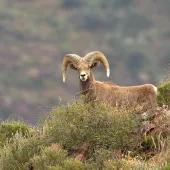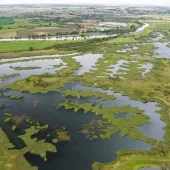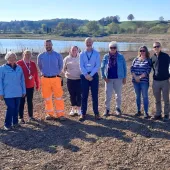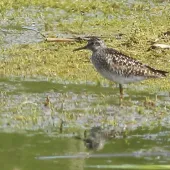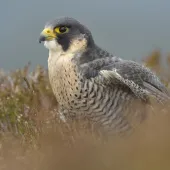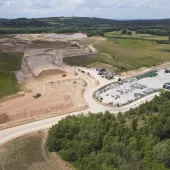AI put work on hold to protect rare breeding bird

Aggregate Industries hatch a plan to safeguard nesting little ringed plovers at Chard Junction
AS part of Aggregate Industries’ commitment to help safeguard wildlife, this summer saw the company put work on hold after little ringed plovers were seen to be nesting on a quarry site earmarked for active operations.
The little ringed plover is a rare breeding bird that migrates to the UK for the spring and summer, with around 1,200 pairs nesting on areas of stony ground close to shallow water.
At least one pair regularly takes up residence at Aggregate Industries’ Chard Junction sand and gravel quarry, in Somerset, where the birds have been provided with a number of suitable nest sites, all well away from the operational area.
This year, however, the birds opted to nest close to ground that was due to be worked over the summer. Aggregate Industries quickly intervened, with the quarry manager changing the direction of extraction to ensure the nest remained safe and undisturbed.
To add to the challenge, after only one youngster survived from the first brood, the quarry’s temporary residents choose to have a second brood, which meant their stay lasted far longer than expected before they eventually headed off to Africa for the winter.
According to Aggregate Industries, the ensuing disruption proved more than worthwhile for the quarry team when two youngsters fledged successfully in late summer and quarry operations were able to return to normal.
Simon Wiltshire, biodiversity and restoration advisor at Aggregate Industries, commented: ‘The little ringed plover is a beautiful and rare species of bird which has a high level of protection – that’s why we have specifically developed a number of suitable nests for them on our site.
‘This year, however, it seems that our annual summer residents decided to reside much closer to the extraction works, so we immediately adapted our plans to make sure we kept out of their way. After their arduous journey from Africa, the least we can do is make sure they are kept sound and safe while trying to breed.
‘Following an unfortunate first brood, it was wonderful to see the new youngsters fledge the nest this summer and we look forward to welcoming their arrival again next year.’



